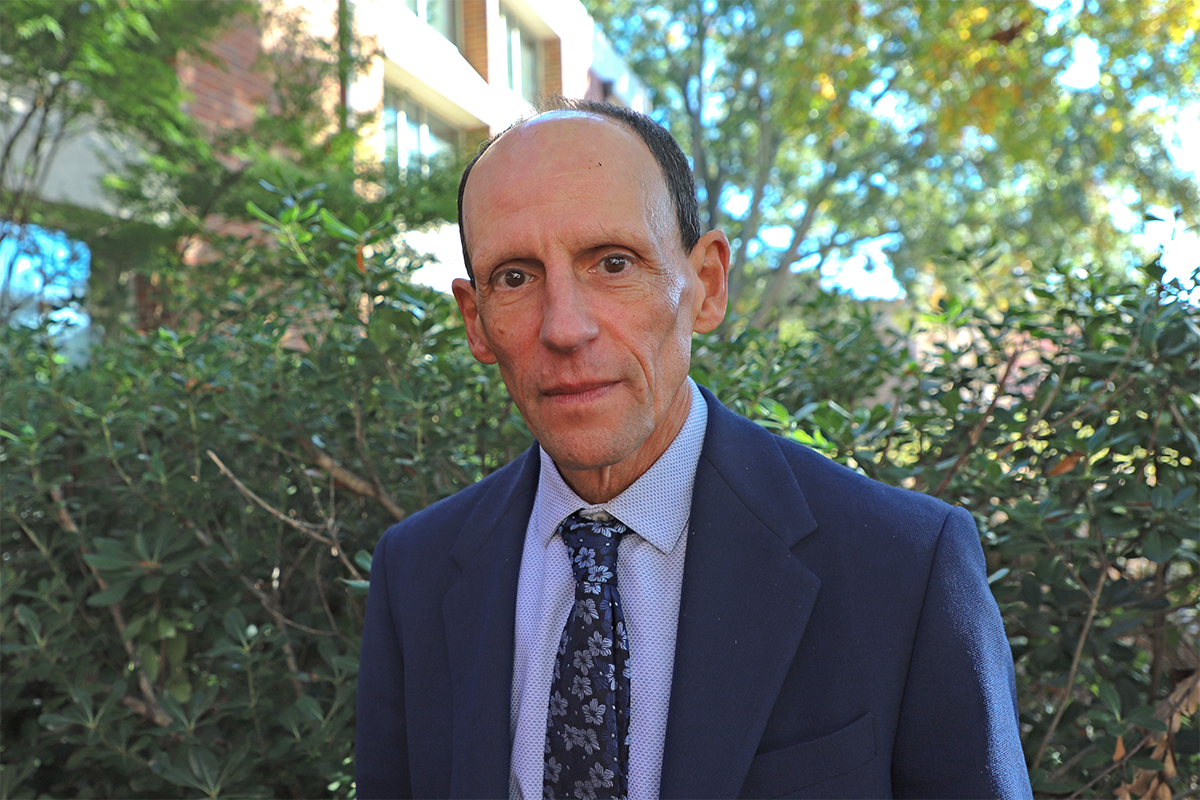The College of Public Health has welcomed ten new faculty this fall who we want to introduce to the wider CPH community. Up this week is Stephen Correia, Ph.D., who has joined the Institute of Gerontology as an associate professor.
What brought you to the field of public health?
My interest in Public Health has been developing over several years, beginning with my service as a neuropsychologist at the Providence Veterans Healthcare System where my connections with the Home-Based Primary Care and the Mental Health Intensive Care Management Systems showed me the positive impact that community-based services can have on not only reducing hospitalizations but having positive health, behavior, and mental health outcomes. Those experiences greatly heightened my awareness of the enormous need for cognitive and mental health care in those who are under-represented and under-resourced and the important role I could play in addressing that need.
Simultaneously, my longstanding work in aging and Alzheimer’s disease and related dementias where the public health needs are great. In 2019, I left the VA and took a position at the Butler Hospital Memory and Aging Program in Providence, RI. There, my awareness of the dramatic disparities in dementia awareness, detection, and care in under-served communities compared with better-resourced and less marginalized community. When I learned of the faculty opening here at the CPH’s CARE Center, I immediately applied for the opportunity it presented to build a program that is specifically designed to serve the underserved.
What excites you or motivates you about your research?
My research has focused mainly on aging and dementia using cognitive assessment and structural brain imaging. My imaging expertise lies mainly in diffusion tensor imaging for modeling and quantifying the integrity of cerebral white matter and its relationship to cognition and behavior. More recently, I collaborated on projects aimed at using machine learning to identify algorithms for pre-clinical detection of Alzheimer’s disease that do not rely on expensive, invasive, and scarce amyloid PET imaging. Other projects aimed at early detection involved remote mobile-phone based assessment and retinal imaging for beta-amyloid plaque detection.
What motivates and excites me about research? The opportunity to produce generalizable evidence that nudges the needle on detection, care, and prevention of cognitive decline. To me, research and clinical work share a key attribute: both have the potential to make a difference — in an individual in one case, and in a community or population in the other case. Both are very rewarding. Doing research requires creativity, learning, collaborating with others, and mentoring — all in an effort to help others. What could be better?
How have you partnered with communities to improve health? Is there service or outreach work you’d like to do in Athens or Georgia?
Prior to arriving at UGA, I was involved with several projects designed to bring cognitive assessment and education to underserved communities. These varied efforts involved cultivating partnerships with local community leaders, building bridges to minority communities, and partnering with local health providers, churches, and elected officials. I am excited to build upon these experiences and skills to advance the rural dementia outreach efforts of the Cognitive Aging Research and Education (CARE) Center in the CPH’s Institute of Gerontology (IoG).
What are you looking forward to this Spring semester?
Teaching my first UGA graduate course, working with UGA clinical neuropsychology students, and working with my colleagues in CARE Center on existing research studies, grant writing, and manuscript writing. I look forward to forming collaborations with other faculty members within and beyond the CPH. I also look forward to continuing to learn about UGA, Athens, and Georgia!
Last one – what do you do for fun?
Cycling, hiking, and learning about the UGA and Athens diverse arts offerings.
Posted on December 12, 2022.






